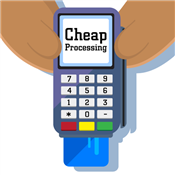Cannabis Credit Card Processing
Learn everything you need to know about cannabis credit card processing. You'll find the best processors in the end, too.
 |
The cannabis industry is booming, supporting over 400,000 jobs as of last 2022, and generating $25 billion in sales in the same year.
But despite its success, payment processing remains a major hurdle, especially when it comes to credit cards.
Due to conflicting state and federal laws, traditional banks and payment networks like Visa and Mastercard won't process cannabis transactions. This means dispensaries can't accept credit cards.
That said, workarounds exist. And in this guide, you'll learn the alternative payment solutions, the legal challenges involved, and what the future holds for cannabis payment processing.
High Risk? No Problem
- Competitive Options for Payment Processing at All Risk Levels
- Fast Funding
- No Setup/Hidden Fees
- No Minimum Credit Score
- All Industries Accepted
Cannabis Businesses Can't Accept Credit Cards
Cannabis businesses must comply with industry regulations to operate legally. These regulations may change from time to time, and they vary per state.
That said, even though certain state laws have allowed cannabis for medical or recreational use, there are federal laws that could mean serious trouble for all cannabis merchants and financial institutions. You can read about the laws below.
As of April 2023, cannabis is fully legal (medical and recreational) in 24 states, while medical marijuana is legal in 38 states.[1] The National Cannabis Industry Association provides a resource map for the state-by-state laws on marijuana.
Controlled Substances Act of 1970 (CSA)
The Controlled Substances Act is a federal law that classified cannabis as a Schedule I drug.[2]
Schedule I drugs are drugs considered having a high potential for abuse, without accepted medical use in the U.S. They can only be used for federally approved research.
This means cannabis dispensaries are still performing illegally under federal law. Any violation could lead to criminal fines or imprisonment.
For this reason, the Schedule I classification has been widely criticized for being outdated and not based on scientific evidence.
That said, last August 2023, the HHS recommended that the DEA switch marijuana to a Schedule III drug, which can be an encouraging outlook for the industry. You can read more about it below in The Future of Cannabis Payment Processing.
The Department of Justice highlights in a memorandum their enforcement priorities regarding marijuana, which includes the prevention of:[3]
- Distribution of marijuana to minors
- Profits going to criminal enterprises, cartels, and gangs
- Diversion of marijuana to a state where it's illegal
- Using marijuana as a cover for other illegal drugs or activity
- Violence and firearms use in marijuana operations
- Drugged driving
- Growing marijuana on public lands
- Marijuana possession or use on federal property
This may give more confidence to cannabis dispensaries and financial institutions–that they may be safe from prosecution as long as they don't perform any of the 8 activities.
Anti-Money Laundering Laws (AML)
Financial institutions technically don't violate the CSA directly, since they don't manufacture and distribute marijuana.
However, they may end up acquiring proceeds from their customers' sales–which could include cannabis sales.
According to federal anti-money laundering laws, it's illegal to handle proceeds from unlawful activities (which include marijuana sales as they violate the CSA).
Financial institutions could be subject to imprisonment or fines.
Bank Secrecy Act
Financial institutions are required to have policies that ensure their clients don't engage in illegal practices, such as selling marijuana.
They would also need to report to law enforcement any illegal or suspicious activity. Otherwise, their personnel could be subject to imprisonment (up to 5 years).
Now, there are some states who have already legalized medical and/or recreational use of marijuana.
Given the contradictions of the laws at the state and federal level, financial institutions can refer to the FinCEN Guidelines for any confusion regarding the Bank Secrecy Act.
There are currently no formal guidelines for the legalization of marijuana at the state level. However, there are guidelines for financial institutions when reporting marijuana businesses (through Suspicious Activity Reports or SARs).[4]
- Marijuana Limited SAR: for when a marijuana business does not violate state law
- Marijuana Priority SAR: for when a marijuana business is "engaged in activities that implicate enforcement priorities"
- Marijuana Termination SAR: for when a financial institution believes that it must cut off its relationship with a marijuana business to remain compliant with AML
Challenges Cannabis Businesses Can Expect
The laws in the previous section clearly state that marijuana is still federally illegal. For this reason, cannabis dispensaries can expect the following.
Limited Banking and Processing Services
Understandably, many traditional banks refuse to provide financial services to cannabis dispensaries because of the potential consequences. However, this leaves dispensaries with limited options for banking services.
Visa and Mastercard have made it clear that they won't work with cannabis businesses, and have been discouraging financial institutions to do so.
Mastercard prohibited the use of PIN debit cards for cannabis transactions,[5] while VISA issued a warning on the use of Cashless ATMs for the same.[6]
PIN debit cards and Cashless ATMs are two of the popular cash alternatives for cannabis businesses.
High Processing Fees
Let's say you find a cannabis-friendly processor that lets you accept cash and credit card alternatives. Due to the high-risk nature of the cannabis industry, you can expect to be charged higher fees to compensate for these risks.
These fees can eat into your profit margin, making it essential to find processors with competitive rates.
Expensive Taxes
280E is a section in the Internal Revenue Code that states you can't deduct business expenses from your gross income if your income is associated with Schedule I or II drugs.
This means unlike other businesses who can deduct their business expenses before they pay taxes, cannabis businesses can't. This makes taxes especially costly, with tax rates costing 70% or more.[7]
Unfortunately, you cannot process credit cards at a cannabis dispensary. Major credit card providers, like VISA and Mastercard prohibit credit card payments for cannabis because it's still federally illegal.
That said, it's federally legal to process credit card payments for industrial hemp (a product with 0.3% or less THC), like hemp seeds and fiber — thanks to the 2018 Farm Bill.[8] This low level of psychoactive ingredient excludes hemp from the description of "marijuana".[9]
Cash Alternatives for Cannabis Transactions
Although cash was the primary mode of payment in the past when purchasing cannabis products, it poses great risks for cannabis dispensaries. Customers may also prefer alternative modes of payments, like credit cards, to make their purchase.
Given that credit cards are prohibited, there are other forms of payment you can consider.
Debit Payments
Cannabis payment processors let you accept debit payments from your customers as a substitute for cash. This could be through digital wallet payments, cashless ATMs, or PIN debit payments.
Cashless ATMs, also known as Point of Banking (POB), functions like a traditional ATM. Customers perform an ATM transaction at the point of sale. These transactions are usually paid in increments of $5 (in some instances, $1).
PIN Debit transactions, on the other hand, let customers pay the exact amount. They'll pay your business with the money they already have in their bank accounts.
ACH Payments and E-Checks
ACH payments, or Automated Clearing House payments, are electronic transfers of money between bank accounts.
While not as convenient as credit or debit card payments, ACH payments provide a more secure and traceable payment option for both customers and dispensaries.
Customers can pay through eChecks or wire transfers. You can email them invoices. Or they can simply scan a QR code for payment. These can be more reliable since you can verify right away if funds have been transferred into your account.
Note that while ACH payments are more "acceptable", ACH is a federal banking system.[10]
An ACH payment is an electronic payment made between two banks— as long as they use the ACH (Automated Clearing House) network. You'll need a payment gateway and an ACH processing account to accept these payments.
Cryptocurrencies
Dispensaries have turned to accepting cryptocurrencies, like Bitcoin, as an alternative to traditional payment methods.
It provides a safe, secure, and easy way for customers to make their purchases. This also ensures that their transactions are discreet.
Risks of Cash Payments in Cannabis Dispensaries
Given that cash alternatives can still be scrutinized by financial institutions, you may be tempted to stick with accepting cash payments. But there are risks to that as well.
Here are some of which you need to be mindful of:
- Cash limits your ability to upsell
When customers come into your store, they can only purchase products they can pay for with their cash on hand.
- Cash pose logistics and security challenges
Manual entry of cash transactions is more prone to errors or inaccuracies. Transactions may also be slower due to the manual counting of cash and change.
When you deposit your earnings, you'll need armored vehicles to protect your cash. This may encourage armed robberies, which put your drivers and your business at risk.
- Cash carries germs and bacteria
Cash is notoriously covered in germs. And since the COVID-19 pandemic, people have been more cautious about touching physical cash. More and more customers have been preferring to use contactless payments for more safety.
The Future of Cannabis Payment Processing
The cannabis industry is a profitable industry. According to Headset, a team of analysts for the cannabis industry, the market can potentially reach $45.8 billion by 2025.[11]
This can mean that people may open up more to the industry. However, until federal laws make marijuana legal, large financial institutions may maintain their stance on discouraging and prohibiting processing marijuana transactions.
Here are some of the latest news on marijuana-related laws.
SAFER Banking Act
The SAFER Banking Act ensures cannabis dispensaries have access to financial services like deposit accounts and insurance.[12]
It's meant to provide safety for banks, credit unions, and other financial institutions in providing such services, given the conflict between federal and state laws.[13]
As of March 2, 2025, this bill has a pending Senate floor vote.
Recommendation to Move from Schedule I Drug to Schedule III
During President Biden's term, he mentioned that no person should be in jail for using or possessing marijuana.[14]
The statement includes pardoning all federal offenses for drug possession and the review of marijuana's schedule under federal law. After which, HHS recommended the DEA that marijuana be rescheduled from a Schedule I drug to a Schedule III.[15]
This recommendation is based on the FDA's review of marijuana as requested by the former president.
That said, if marijuana is to be rescheduled, it means:
- It becomes lawful to manufacture, distribute, dispense, and possess medical marijuana.
- Marijuana producers and retailers can now deduct the costs of selling cannabis products from their federal income tax filings.
- There will be no more quota limitations for the production of marijuana.
Top 10 Cannabis Credit Card Processors
Major credit card networks don't accept credit card payments for cannabis products. However, the processors on this list provide you with other means to accept digital payments.
On top of the list, you have the best processor for a growing cannabis dispensary.
Cova Pay: For Easy Compliance and Expansion
It can be hard to keep track of all the regulations involved in the cannabis industry, but there's a lot less to think about with Cova Pay. It takes care of the compliance requirements, so you won't need to worry about state laws.
What's more, the processor has over 20 years of tech experience, with great user reviews and recommendations. Its tablet-based POS is especially designed for cannabis retail–enabling you to accept ACH payments and branded gift cards from customers.
Pros + Cons:
|
|
Cova Pay is one of the best ACH payment processors for cannabis businesses, thanks to its reliable uptime and proven track record of satisfied customers.
Flowhub Pay: For Short-term Contracts
Cannabis dispensaries often face long-term contracts with payment processors since they're considered high-risk businesses.
But with Flowhub Pay's high-risk merchant account, you get a month-to-month contract—giving you the flexibility to switch providers if you're not satisfied.
Additionally, Flowhub Pay has a proven track record, processing $3 billion in annual sales and serving over 1,000 cannabis dispensaries.[18] With their industry expertise, you can trust you're working with a processor that truly understands your business.
Pros + Cons:
|
|
- Set budtender tips
- Manage multiple store locations
- Set staff permissions
- Set purchase limits and age verification
- Review reports and analytics
BlazePay: For Medical & Recreational Marijuana
BlazePay is an all-in-one payment processor designed for cannabis dispensaries, whether you sell in-store or online. You can accept PIN Debit, ACH, and cashless ATM payments, plus charge pre-payments and convenience fees for added flexibility.
This processor may even help boost your revenue as dispensaries using BlazePay have seen a 200%+ increase in budtender tips and a 35% increase in basket size.[19]
It's a great choice for both medical and recreational marijuana sellers, with built-in state compliance automation through Metrc and BioTrack integrations.
Pros + Cons:
|
|
- Encourage customers to increase basket size by using their debit cards
- Verify age and medical recommendations
- Manage multiple store locations
- Set up cannabis delivery services
- Set up a loyalty program
- Manage inventory (perform bulk updates, transfer inventory, etc.)
Paybotic: For Zero Transaction Fees
Paybotic is unique on this list, since you may not get charged transaction fees for debit processing. You only pay the onboarding fee and monthly fees.[20]
You can get approved for an account the same day you apply. Then, you can get started with accepting debit card payments, ACH or eChecks, and gift cards.
The processor accepts retail cannabis businesses like those selling CBD or hemp products. It integrates with most online shopping carts, and offers features for delivery and curbside pickup.
Pros + Cons:
|
|
- Wireless terminals for delivery payments
- Next-day expedited funding or calendar-day funding
- End-to-end encryption and EMV compliance
- Solutions compliant with federal and state regulations
- 24/7 merchant support
- Merchant cash advances and cannabis banking solutions
Dutchie Payments: Best Customer Support
Customer support is a major factor when choosing a payment processor, and Dutchie Payments stands out with its 60-second average response time. Plus, their support team is available 7 days a week, ensuring you get help whenever you need it.
Beyond great support, Dutchie Payments is a powerhouse in cannabis payment processing, handling over $22 billion in transactions per year. Their all-in-one solution is built specifically for dispensaries, making payment processing seamless.
With Dutchie Pay, customers can pay online via ACH, while dispensaries can also accept debit payments for in-person sales—giving you flexibility and convenience.
Pros + Cons:
|
|
- Track sales, like your most popular products and average cart size
- Review your busiest hours
- Access support for traceability through Metrc, BioTrack, etc.
- Set up bulk deliveries and assign multiple orders to a single driver
- Purchase POS hardware for your physical location
- Completely customize your menu
- Use an embedded menu if you already have a website
PaymentCloud: Transparent Pricing
PaymentCloud is one of the more established high-risk processors offering CBD merchant accounts. It supports traditional CBD and hemp-driven products, including CBD for skincare, supplements, hemp oil, ingestibles, and more.
Compared to the others on the list, PaymentCloud is also more transparent with its rates. CBD payment processing rates typically range from 2.95% to 5%[21] with no long-term contracts typical for high-risk businesses.
What's more, you can sell online or in person. Just integrate your CBD merchant account into your website from BigCommerce, WooCommerce, Shopify, etc.
Pros + Cons:
|
|
High Risk? No Problem
- Competitive Options for Payment Processing at All Risk Levels
- Fast Funding
- No Setup/Hidden Fees
- No Minimum Credit Score
- All Industries Accepted
Instabill: For E-Commerce Cannabis Giants
Instabill has been a trusted credit card processor for high-risk e-commerce businesses since 2001, specializing in cannabis payments, particularly CBD hemp oil.
Designed for larger businesses, Instabill requires a minimum processing volume of at least $1,500 per week.[22] Customers can pay via debit by linking their bank accounts to load or reload a payment card.
For even more flexibility, you can accept cryptocurrency payments like Bitcoin. Instabill also provides a POS countertop device and a cryptocurrency ATM, making it easier to process both traditional and digital payments.
|
|
B.I.G.: High Approval and Client Retention
With over 20 years of experience in high-risk payment processing, Bankcard International Group has been serving cannabis dispensaries since 2006.
It boasts an impressive 98% approval rate and a 97% client retention rate, making it a reliable choice for dispensaries.
The company supports a wide range of cannabis products, including CBD oil, edibles, pet products, flowers, topicals, and vape products—giving businesses plenty of flexibility.
Merchants can offer interchange-plus pricing and accept PIN debit, eChecks, and even digital currencies like Bitcoin, making payments seamless for both businesses and customers.
Pros + Cons:
|
|
eMerchant Broker: Best for Poor Credit
eMerchant Broker specializes in high-risk merchant accounts, including support for CBD businesses. What sets it apart, however, is its willingness to work with clients who have poor credit or even previously terminated merchant accounts.
It boasts a 99% approval rating, and you can even get approved even without a processing history.[23]
Currently, eMerchant Broker serves over 3,200 business owners (though not all may be in the CBD industry), making it a trusted choice for high-risk merchants.
Pros + Cons:
|
|
PayKings: For CBD Oil Businesses
If you're in the CBD oil business, PayKings is worth considering. It specializes in this niche and even works with B2B vendors.
With a 99% approval rate and 24-hour approval process, getting started is quick and easy. Once approved, you can accept ACH and e-check payments from your customers.
PayKings also provides payment gateways, eCommerce plugins, and terminals, giving you everything you need to streamline your payment processing.
Pros + Cons:
|
|
Mastercard does not allow the purchase of cannabis products through its debit cards due to the drug being federally illegal. This includes the use of bank cards and PIN debit, which can make it extra challenging for cannabis dispensaries to accept payments, even with a processor.[24]
Methodology
To be one of the best payment processors for cannabis dispensaries, the processor should accept payment methods other than cash. It should also be compliant and always updated with the changes in regulations.
Because cannabis is a very niche industry, the POS should also cater to its unique needs, like age verification, support for order traceability, and delivery services. Plus, it ideally supports various CBD products to support a wide range of cannabis retailers.
We also considered the processor's reputation through customer reviews. It has to be reliable with proven track records.
Bottom Line
Accepting card payments for your cannabis dispensary can be tricky due to conflicting laws. And since credit card payments aren't an option, you'll need alternative solutions.
Thankfully, cannabis payment processors can help. They can offer secure, compliant payment methods to make transactions easier.
Just be sure to choose a processor that stays up to date with industry regulations and provides the right features to support your business long-term.
References
- ^ NCSL. State Medical Cannabis Laws, Retrieved 03/14/2025
- ^ DEA. Drug Scheduling, Retrieved 03/14/2025
- ^ Department of Justice. Memorandum for All United States Attorneys, Retrieved 03/02/2025
- ^ Congress. Marijuana Banking: Legal Issues and the SAFE(R) Banking Acts, Retrieved 03/02/2025
- ^ Forbes. Mastercard Cracks Down on Marijuana Transactions, Retrieved 03/01/2025
- ^ Forbes. What VISA's Warning About Cashless ATMs Means for the Cannabis Industry, Retrieved 03/01/2025
- ^ Marijuana Policy Project. What is 280E?, Retrieved 03/01/2025
- ^ FDA. Hemp Production and the 2018 Farm Bill, Retrieved 03/14/2025
- ^ Congressional Research Service. The 2018 Farm Bill (P.L. 115-335): Summary and Side-by-Side Comparison, Retrieved 03/01/2025
- ^ Federal Reserve. Automated Clearinghouse Services, Retrieved 03/01/2025
- ^ Headset. Cannabis Sales Projections for U.S. Markets in 2025, Retrieved 03/14/2025
- ^ Senate Democrats. SAFER Banking Act, Retrieved 03/14/2025
- ^ Congress. SAFER Banking Act, Retrieved 03/01/2025
- ^ Wall Street Journal. Biden: 'No One Should Be Jailed for Using or Possessing Marijuana', Retrieved 03/14/2025
- ^ Congressional Research Service. Department of Health and Human Services Recommendation to Reschedule Marijuana: Implications for Federal Policy, Retrieved 03/14/2025
- ^ Cova. Pricing, Retrieved 03/14/2025
- ^ Flowhub Pay. Flowhub Cash Terms & Conditions, Retrieved 03/14/2025
- ^ Flowhub Pay. About Us, Retrieved 03/02/2025
- ^ Blaze. BlazePay, Retrieved 03/14/2025
- ^ Paybotic. FAQs: What is the fee structure?, Retrieved 03/14/2025
- ^ PaymentCloud. CBD Merchant Account, Retrieved 03/14/2025
- ^ Instabill. How Do I Get A CBD Merchant Account?, Retrieved 03/14/2025
- ^ eMerchant Broker. High-Risk Merchant Accounts, Retrieved 03/04/2025
- ^ The New York Times. Mastercard Moves to Stop Use of Debit Cards at Cannabis Shops, Retrieved 03/14/2025
Write to Karen Eloriaga at feedback@creditdonkey.com. Follow us on Twitter and Facebook for our latest posts.
Note: This website is made possible through financial relationships with some of the products and services mentioned on this site. We may receive compensation if you shop through links in our content. You do not have to use our links, but you help support CreditDonkey if you do.
Not sure what is right for your business?
|
|
|
|
|
|







